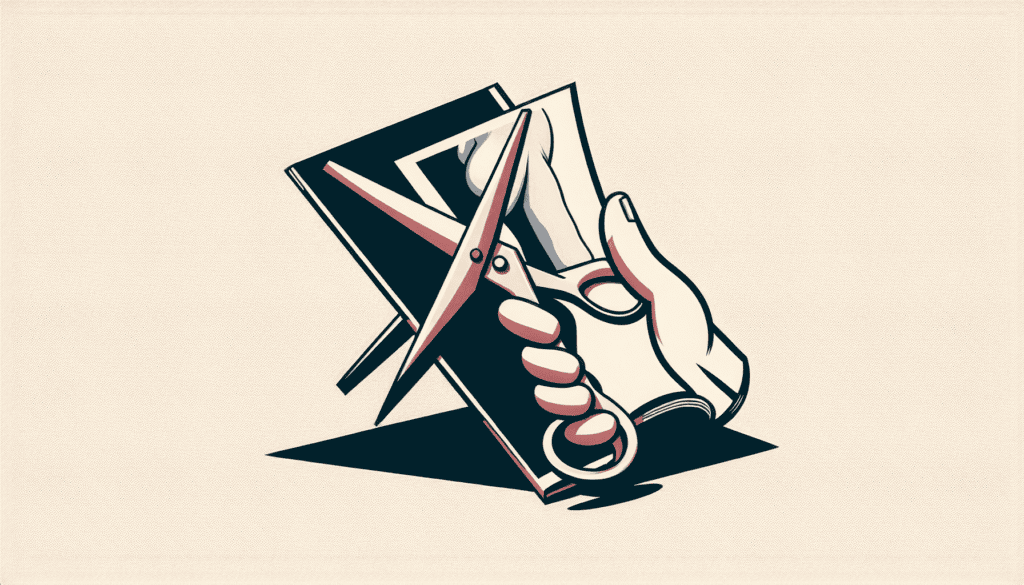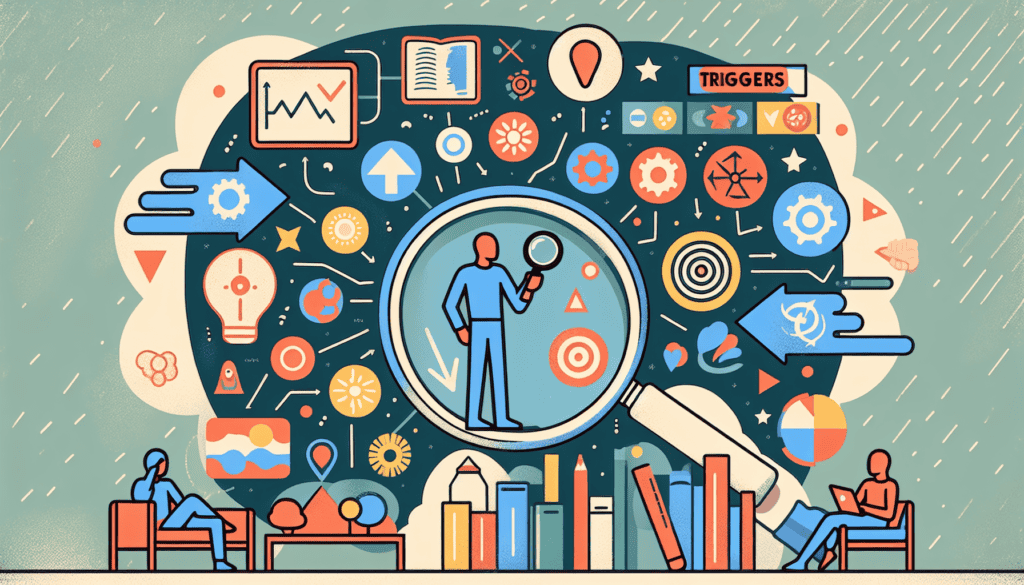Understanding Slip-Ups
Getting tangled in the web of porn addiction often has people bumping into words like “slip” and “relapse.” Knowing what sets them apart can seriously help anyone trying to straighten things out.
Definition of a Slip
A slip is like that moment when you’ve been holding it together and then—oops!—you stumble. It’s just one slip-up, like peeking back at a habit you’re trying to ditch for good.
Experts who get this stuff will tell you that slip ups are more like tiny detours rather than screaming wrong turns. Interestingly, these little mishaps can be goldmines for learning, giving folks a chance to double down on their recovery game plan (The Process Recovery Center).
| Characteristic | Slip |
|---|---|
| Intent | Unplanned |
| Nature | Temporary blip |
| Learning Opportunity | Definitely! |
Differentiating Slip and Relapse
The line between a slip and a full-blown relapse is really about what’s going on in the mind. A slip’s like a one-off dabble, but a relapse is waving the white flag. It’s crucial to see that two aren’t twins; slips are often quick missteps not needing a big overhaul.
| Characteristic | Slip | Relapse |
|---|---|---|
| Intent | Unplanned | Giving up recovery |
| Duration | Fleeting | Stretched out |
| Recovery Response | A need to reflect | Strategy overhaul needed |
Figuring out if what happened was just a slip can keep spirits up, helping people see it’s not uncommon to trip up on this path at least once. Over two-thirds trying to break free of addiction hit snags, proving a slip doesn’t wipe the slate clean (Verywell Mind). Knowing this can be a big comfort for those trying to kick the habit.
If you’re curious about how to bounce back emotionally from these little blunders, take a look at guides like i just relapsed, does this mean that all progress is lost? or how to deal with the guilt and shame of a relapse?. They can help give folks a leg up to keep moving forward.
Triggers and Coping Strategies
Recovering from addiction ain’t a walk in the park and knowing what might trip you up can be a game changer. Figuring out those tricky triggers helps folks tackle those tough days head-on.
Common Slip Triggers
Life’s full of curveballs, and certain things or feelings can push someone off track during recovery. Spotting what’s setting you off lets you dodge the next hit. Here are some usual suspects:
| Trigger | What’s The Deal? |
|---|---|
| Emotional Distress | When life gets you down or ticked off, it’s easy to reach for your old crutches. |
| Social Pressure | Hanging with the wrong crowd can make saying “no” a superpower. |
| Exposure to Substances | Coming face-to-face with old habits, like substances or stuff like porn, makes it tough to stay strong. |
| Unrealistic Expectations | Shooting for the moon and missing can mess with your head. |
| Poor Self-Care | Skip taking care of yourself, and you’re more likely to wobble. |
Getting a handle on these triggers beefs up your defenses against the slip. Curious for more? Dive into common relapse triggers and how to tackle them.
Coping with Slip-Ups
Bouncing back from a slip ain’t just about coping—it’s about thriving. Here’s how to roll with it:
- Self-Compassion: Give yourself a break. Slips happen, and they’re all part of bouncing back.
- Seek Back-Up: Lean on your peeps or a support crew who gets it. They’ll keep you grounded.
- Pinpoint Triggers: Jot down what trips you up, so you know what’s what.
- Adjust the Game Plan: Figure out why you slipped and tweak your strategy. Personalize it!
Getting back up after a tumble takes guts and a bit of tenderness towards oneself. Focus on staying well, lean on your clan, and tweak your plan as needed. Curious about more tricks of the trade? Check out taking lessons from a relapse and mentally bracing for a relapse.
Understanding your personal triggers and having solid strategies at hand helps folks steer through recovery with more ease and a touch of grit. Battling guilt or shame after a slip? Look into managing guilt and shame post-slip.
Relapse Explained
Definition of a Relapse
A relapse is when someone slips back to old addictive habits after being clean and sober for a while. It’s like knowing the stove is hot but deciding to touch it again anyway. Not to be mixed up with a slip-up, which is more of a one-time oopsie, a relapse is like deciding to replay the same old bad tune of past behaviors. (Northstar Behavioral Health).
Factors Leading to Relapse
Whoa, there’s a laundry list of things that can trip someone up and lead to a relapse. Buckle in—this isn’t a one-size-fits-all deal. Everyone’s got their unique buttons:
| Factor | Description |
|---|---|
| Stress | Overwhelming stress makes people run back to the familiar arms of their old habits. |
| Emotional Triggers | Sadness, anger, or even boredom can press the play button on cravings. |
| Social Situations | Hanging around with the people or places tied to past habits can light the relapse fuse. |
| Overconfidence | Thinking you’re untouchable in sobriety? Watch out. That’s when risky behaviors sneak in. |
| Lack of Support | A shaky support system means tough times can turn into relapse temptations (American Addiction Centers). |
The good news? The longer someone stays clean, the lower their chance to fall back. Those who’ve clocked more time in recovery have better odds of sticking it out. In the second year, 21.4% might struggle but fast forward a few more years, and that number drops to 9.6% during years three to five and then just 7.2% after year five (The Recovery Village).
Spotting the signs of a possible relapse, knowing the main triggers, and lining up support are all key steps in keeping that progress going strong. Thirsty for more wisdom? Dive into our reads on facing the guilt and shame of a relapse and bouncing back from a relapse.
Recovery and Moving Forward
Coping with setbacks on the road to beating a porn habit can be a bit like stumbling over a rock when you’re running a marathon. Sometimes it’s just a little trip, other times it knocks you flat. Here’s a kit of tricks to dust off and keep on going when you stumble or fall.
Recovery After a Slip
A slip is like sneaking a cookie when you’re on a diet—a one-time oops. It doesn’t mean you’ve failed; it’s just a misstep on the dance floor of recovery. Learning from it is like getting dance lessons for next time. Here’s how to swing back into step:
- Self-Compassion: Talk to yourself like you would to a friend who spilled spaghetti on their shirt—hey, it happens. Nobody’s perfect, and beating yourself up only invites bruises.
- Seeking Support: Whether it’s a buddy, a therapist, or someone in a recovery group, sharing what happened takes the load off and lets them cheer you back on track.
- Identifying Triggers: Understand what’s firing off those cravings. Maybe it was a stressful day or an old memory. Knowing your triggers is like finding breadcrumbs back to the scene.
- Reevaluating the Recovery Plan: Tweak those plans, like upgrading gear when the old stuff isn’t cutting it. Small changes can make a big difference next time temptation comes knocking.
Overcoming and Learning from a Relapse
A relapse isn’t just slipping up once. It’s more like unexpectedly diving into a big, gooey slice of the past after practicing self-control for a while. Here’s how to shake it off and keep moving:
- Resilience: Picture resilience as a rubber band. It’s about snapping back after stretching. Remember, you’re not starting over; you’re starting stronger with more practice in your pocket.
- Self-Care: Give yourself the TLC you need. Exercise to destress, munch on something tasty but healthy, and carve out some quiet time to chill. Healthy habits set the mood for recovery.
- Seeking Support: Even when it feels like you’re on repeat, leaning on friends, groups, or pros keeps you grounded and pushes you forward.
- Making Adjustments to the Recovery Plan: Let past relapses teach future triumphs. Sometimes a better compass or map shows up after we’ve been through rough waters.
Seeing the difference between a slip and a relapse gives direction—one’s a bump, the other a detour. But both teach lessons in this wild ride we call recovery. It’s okay to feel stuck sometimes; after all, understanding struggles is a big piece of reaching the finish line.











